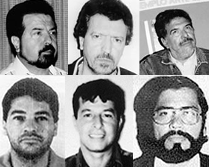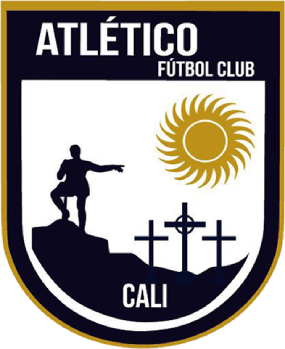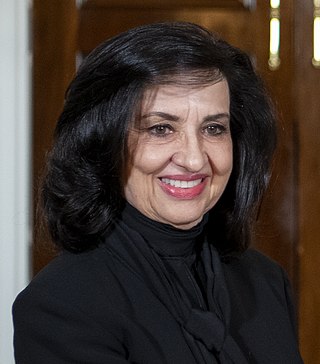Since being liberalized in 1991, the Colombian telecommunications sector has added new services, expanded coverage, improved efficiency, and lowered costs. The sector has had the second largest investment in infrastructure since 1997. However, the economic downturn between 1999 and 2002 adversely affected telecommunications. During this period, Colombia's telecommunications industry lost US$2 billion despite a profit of US$1 billion in local service. In June 2003, the government liquidated the state-owned and heavily indebted National Telecommunications Company and replaced it with Colombia Telecomunicaciones. The measure enabled the industry to expand rapidly, and in 2004 it constituted 2.8 percent of gross domestic product (GDP). Telefónica of Spain acquired 50 percent plus one share of the company in 2006.

Santiago de Cali, or Cali, is the capital of the Valle del Cauca department, and the most populous city in southwest Colombia, with 2,280,522 residents estimate by DANE in 2023. The city spans 560.3 km2 (216.3 sq mi) with 120.9 km2 (46.7 sq mi) of urban area, making Cali the second-largest city in the country by area and the third most populous after Bogotá and Medellín. As the only major Colombian city with access to the Pacific Coast, Cali is the main urban and economic center in the south of the country, and has one of Colombia's fastest-growing economies. The city was founded on 25 July 1536 by the Spanish explorer Sebastián de Belalcázar.

The Cali Cartel was a drug cartel based in southern Colombia, around the city of Cali and the Valle del Cauca. Its founders were the brothers Gilberto Rodríguez Orejuela, Miguel Rodríguez Orejuela and José Santacruz Londoño. They broke away from Pablo Escobar and his Medellín associates in 1988, when Hélmer "Pacho" Herrera joined what became a four-man executive board that ran the cartel.

Valle del Cauca, or Cauca Valley, is a department in western Colombia abutting the Pacific Ocean. Its capital is Santiago de Cali. Other cities such as Buenaventura, Buga, Cartago, Palmira and Tuluá have great economical, political, social and cultural influence on the department's life. Valle del Cauca has the largest number of independent towns with over 100,000 inhabitants in the country, counting six within its borders. Buenaventura has the largest and busiest seaport in Colombia, moving about 8,500,000 tons of merchandise annually.

Alfonso Bonilla Aragón International Airport, formerly known as Palmaseca International Airport, is an international airport located between Palmira and Cali, the capital of Valle del Cauca Department, Colombia. It is Colombia's fourth-busiest airport in passenger volume, with 5,600,000 people using the airport in 2016, and the third largest in area and construction. The airport often serves as the alternate airport for Bogotá - El Dorado Int'l Airport and other Colombian airports.

Ernesto Samper Pizano is a Colombian politician. Samper is a member of the influential Samper family. He served as the President of Colombia from 1994 to 1998, representing the Liberal Party. From 2014 to 2017 he served as the Secretary General of the Union of South American Nations (UNASUR).

América de Cali S. A., best known as América de Cali or América, is a Colombian professional football club based in Cali. It competes in the Categoría Primera A, the top-flight league of Colombian football. The team plays its home games at the Estadio Olímpico Pascual Guerrero, one of the most important stadiums in the country.

Asociación Deportivo Cali, best known as Deportivo Cali, is a Colombian sports club based in Cali, most notable for its football team, which currently competes in the Categoría Primera A.

Palmira is a city and municipality in southwestern Colombia in the Valle del Cauca Department, located about 27 kilometres (17 mi) east from Cali, the department's capital and main city in the South of Colombia. Palmira is the second largest city in the Valle del Cauca, behind Cali.

Atlético Fútbol Club, formerly known as Dépor FC, is a professional Colombian football team based in Cali that currently plays in the Categoría Primera B. They play their home games at the Olímpico Pascual Guerrero stadium.
Water supply and sanitation in Colombia have been improved in many ways over the past decades. Between 1990 and 2010, access to improved sanitation increased from 67% to 82%, but access to improved water sources increased only slightly from 89% to 94%. In particular, coverage in rural areas lags behind. Furthermore, despite improvements, the quality of water and sanitation services remains inadequate. For example, only 73% of those receiving public services receive water of potable quality and in 2006 only 25% of the wastewater generated in the country underwent any kind of treatment.
Access to at least basic water increased from 94% to 97% between 2000 and 2015; an increase in access to at least basic sanitation from 73% to 86% in the same period;
Eduardo Ignacio Verano de la Rosa is a Colombian politician, businessman, and active member of the Colombian Liberal Party. He served as Governor of Atlántico Department from 2008 to 2011 and from 2016 to 2019, and as Colombian Minister of Environment from 1997 to 1998.

Claudia Blum Capurro is a Colombian psychologist and politician who served as foreign minister. A veteran Senator, she became the first woman to serve as President of the Senate of Colombia. She also served as the 26th Permanent Representative of Colombia to the United Nations.
Access to the Internet in Colombia shows a marked increase during the last few years. As of September 2009, the web connections surpassed two million, as compared with an estimated total of 900,000 Internet subscribers by the end of 2005. The current figure equated to 17 million Internet users, plus 3.8 million mobile internet users, or 38.5 percent of the 2009 population, as compared with 4,739,000 Internet users in 2005, or 11.5 percent of the 2005 population. Colombia had 581,877 Internet hosts in 2006. This represents an overall growth of 54 percent each year, the highest in Latin America. Although as many as 70 percent of Colombians accessed the Internet over their ordinary telephone lines, dial-up access is losing ground to broadband. In 2005 Colombia had 345,000 broadband subscriber lines, or one per 100 inhabitants. In 2006 the number of personal computers per 1,000 people increased to an estimated 87 per 1,000 inhabitants, a rate still below that in other large Latin American economies. As of 2009, Colombia duplicated the number of personal computers reaching 26.3 percent, as compared with the rest of Latin America which showed a decreasing trend.
Private sector participation in water supply and sanitation in Colombia has been more stable and successful than in some other Latin American countries such as Argentina or Bolivia. According to the World Bank, between 1996 and 2007, more than 40 water and sanitation service provision contracts have been awarded to private or mixed companies in Colombia, serving a combined population of 7.3 million or more than 20% of the urban population. According to the Colombian water regulator, there were even more public-private partnerships for water and sanitation in Colombia in 2004: 125 private and 48 mixed public-private water companies, including large, medium and small companies. Most of the contracts were awarded in poor municipalities with highly deteriorated infrastructure. They relied mainly on public funding, complemented by limited private funding. The design was based on the central government providing grants in the start-up years to rehabilitate deteriorated systems and to expand access, while the contracting municipal governments also made budgetary transfers on an annual basis to complement revenues. Colombia thus departed from the standard concession approach, which requires private concessionaires to finance investments with their own resources.

Empresas Públicas de Medellín (EPM) was established on 18 November 1955 as a residential public utilities company which, initially, only served the inhabitants of Medellin, Colombia its hometown.

Integrated urban water management in Medellín, Colombia is considered to be an overall success and a good example of how a large metropolitan area with moderate income disparity can adequately operate and maintain quality water supply to its many citizens. This is quite remarkable given the large urbanized population in the metropolitan area of the Aburrá Valley of 3.3 million, many of whom live on the slopes of the Aburrá Valley where Medellín is situated and highly prone to landslides and stormwater erosion. Sound urban water management within the metropolitan area of the Aburrá Valley is carried out by a set of technically strong institutions with financial independence—and lack of political interference such as Empresas Publicas de Medellin (EPM).

A series of protests began in Colombia on 28 April 2021 against increased taxes, corruption, and health care reform proposed by the government of President Iván Duque. The tax initiative was introduced to expand funding to Ingreso Solidario, a universal basic income social program established in April 2020 to provide relief during the COVID-19 pandemic in Colombia, while the legislative Bill 010 proposed several changes in the health care system in Colombia.














